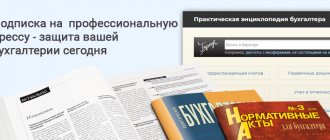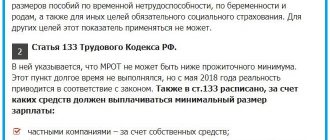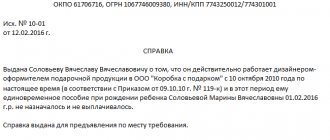Social benefits are benefits and compensations that are provided to certain categories of citizens for financial support. Depending on the type, they can be either one-time or permanent. As a rule, funds are accrued to individuals from the social insurance fund or the state budget, and are regulated at the level of federal legislation. Some social benefits may be paid from the regional budget or commercial enterprises.
Each enterprise is required to submit statistical reports to Rosstat, which contain information about the number of employees and the salary fund of the organization as a whole. In addition to this data, they also include information about the funds spent by the company on the payment of compensation or social benefits for employees, which is not always taken into account when filling out forms. [contents]
What are social payments?
The state provides assistance programs for citizens who have lost their ability to work and who are unable to provide for themselves and their families due to various reasons. Social payments in Russia are varied - they may include one-time cash or regular subsidies from the federal, regional, and local budgets. Supporting the poor is considered one of the state's priorities. You can receive cash benefits or a set of social services (hereinafter referred to as SSS), and enjoy benefits when paying for goods and services.
Sources of financing
Each category of beneficiaries has its own sources of subsidies - federal, regional or local. Citizens who have an established status or services to Russia - donors, heroes of the Russian Federation, veterans, disabled war veterans, residents of besieged Leningrad, repressed persons - can receive benefits from the state budget. Regional subsidies include additional payments to pensions up to the established subsistence level (hereinafter referred to as LM) for a given subject of the country.
The competence of local authorities includes the recognition of families as low-income with the issuance of cash certificates for housing and benefits for utility bills. The Pension Fund of the Russian Federation (hereinafter referred to as the PF of the Russian Federation) is engaged in calculating benefits and issuing money for maternity capital. The functions of the Social Insurance Fund (hereinafter referred to as the SIF) include payment of certificates of incapacity for work, issuance of preferential vouchers, payments for occupational diseases and industrial accidents.
Purpose principles
Legislators provide for special factors affecting social payments to pensioners and other categories of the population in need of government assistance. There are two main criteria that social security officials follow when assigning social supplements:
- A decrease in income due to the occurrence of force majeure circumstances beyond the control of the citizen applying for state assistance. Such cases include temporary or permanent loss of legal capacity due to an illness resulting in disability, the onset of retirement age, dismissal due to downsizing or liquidation of a company, carrying a baby, and the postpartum period.
- The increase in expenses that appears when a newborn appears in the family, the family’s need to improve living conditions, the death of one of the household members and the need to pay for funeral services.
Recommendations from accountants and lawyers
Alexandra Krivosheeva: “When filling out reporting documents that contain information about the number and salary fund, it is important to take into account one important factor. Namely, benefits and payments that an employee receives from the Compulsory Social Insurance Fund of the Russian Federation and other social non-budgetary organizations cannot be added to the amount of payments.
Unfortunately, entering payment data into the appropriate reporting forms is one of the most common mistakes when filling them out. In this regard, before filling out the required reporting form, it is recommended that you familiarize yourself with information on how to fill out the form correctly. Thus, all the necessary information about filling out form P-4 can be found in Rosstat order No. 772 of 2022.”
Angelina Yakovleva: “Report forms P-4, No. MP, etc. are important documents that must be filled out strictly in accordance with the current rules. It is important to understand that different forms for statistical reports must necessarily contain not only information on the average number of employees and the total salary fund, but also data on social payments made.
The specified paragraph of any form of the reporting form should not be ignored by a legal entity. However, it is worth considering that benefits that are paid to an employee from state funds and other extra-budgetary social organizations should not be included in the report for statistics.”
Social payments are in-kind or monetary compensation that are allocated for the purpose of financial support for citizens of the Russian Federation. Each enterprise must submit special reporting forms, which include information about social payments.
Legal regulation
There are many laws regulating the provision of government assistance to citizens in need. In Art. 41 of the Constitution of the Russian Federation states that any citizen of the country has the right to receive medical care, every Russian is guaranteed health protection. Measures of state assistance and protection of vulnerable segments of the population are stipulated in the following legislative acts:
- Federal Law of July 17, 1999 No. 178-FZ “On State Social Assistance”;
- Federal Law of December 10, 1995 No. 195-FZ “On the fundamentals of social services for the population in the Russian Federation”;
- Federal Law of 02.08.1995 No. 122-FZ “On social services for elderly and disabled citizens”;
- Federal Law of 04/05/2003 No. 44-FZ “On the procedure for accounting for income and expenses when calculating the average per capita family income and the income of a citizen living alone in order to recognize them as low-income and provide them with state social assistance.”
Insurance measures for citizens are stipulated by the following social standards:
- Federal Law No. 125-FZ of July 24, 1998 “On compulsory social insurance against industrial accidents and occupational diseases”;
- Federal Law No. 255-FZ of December 29, 2006 “On compulsory social insurance in case of temporary disability and in connection with maternity.”
Subsidies given to families upon the birth of a child are regulated by the following legislative provisions:
- Federal Law No. 81-FZ of May 19, 1995 “On state benefits for citizens with children”;
- Federal Law No. 256-FZ of December 29, 2006 “On additional measures of state support for families with children.”
Payment of pension benefits refers to the following regulatory documents:
- Federal Law of December 15, 2001 No. 166-FZ “On State Pension Provision in the Russian Federation”;
- Federal Law of December 17, 2001 No. 173-FZ “On Labor Pensions in the Russian Federation”;
- Federal Law of December 15, 2001 No. 167-FZ “On Compulsory Pension Insurance in the Russian Federation”;
- Law of the Russian Federation of February 12, 1993 No. 4468-1 “On pension provision for persons who served in military service, service in internal affairs bodies, the State Fire Service, authorities for control over the circulation of narcotic substances and psychotropic drugs, institutions and bodies of the criminal executive system , and their families."
Cost of vouchers
The Social Insurance Fund assessed additional insurance premiums, penalties, and fines, considering that the organization had underestimated the taxable base for contributions by the cost of certain vitamin drinks, lunches, financial assistance, and vouchers for sanatorium treatment provided to employees. The auditors considered that the payments were made within the framework of labor relations, were of an incentive nature, and therefore should be included in the base for insurance premiums.
The courts, taking into account the legal position of the Presidium of the Supreme Arbitration Court of the Russian Federation, set out in Resolution No. 17744/12 of May 14, 2013, came to the conclusion that the payments provided for by the collective agreement and the Regulations on the provision of material assistance to employees are of a social nature and were made in order to maintain social protection of the company’s employees, were not stimulating, did not depend on the employee’s qualifications, complexity, or quality. In this regard, the disputed payments are not subject to insurance premiums (Resolution of the Volga-Vyatka District Autonomous Court of July 18, 2016 in case No. A82-13922/2015).
Who is entitled to social benefits in Russia?
All subsidies allocated to Russians in need are divided into federal and regional payments. The amount of federal benefits is the same for citizens living in any region of the country. Regional additional charges depend on the PM adopted in the region, territory, republic and the minimum wage (hereinafter referred to as the minimum wage) and vary depending on the provision of the local budget and the specifics of financing this item of expenditure.
Federal
Payments classified as federal are subsidized by the state budget, distributed according to target criteria among ministries and departments responsible for material assistance to Russians in need. The following categories of beneficiaries may qualify for these benefits:
- individuals who have state awards, orders, medals indicating services to the country: heroes of Russia, the USSR, labor and war veterans, honorary donors;
- Russians who were given the status of unemployed, disabled people, people who suffered from repression, who were involved in the liquidation of accidents associated with radiation damage, who were home front workers during the Great Patriotic War.
Regional
Subjects of the Russian Federation (hereinafter referred to as the Russian Federation) provide measures to support the local population, which are categorized as regional and depend on the degree to which the local budget is full. Some regions provide an extensive list of subsidies for low-income individuals, while others do not have these budget expenditure items. The following categories of citizens can count on cash benefits:
- disabled elderly people living alone;
- families with the status of large families;
- disabled minors;
- a disabled parent raising minors;
- children who have lost one of their parents;
- minor orphans left without adult care;
- citizens who were subject to reduction or liquidation of an organization;
- Full-time students with children;
- women carrying a baby or on maternity leave;
- people serving an incompetent disabled person of group 1.
Payments included in reporting on forms No. 1-T and No. 1-T (GMS)
Statistical reporting on the number of employees, as well as on the wage fund and social payments in form No. 1-T is provided by enterprises, organizations or institutions that are part of the country's railways.
This form, similar to other statistical reports, contains data on in-kind and monetary compensation that was provided to employees. These include:
- Supplements to the current amount of pensions for employed pensioners.
- A one-time remuneration upon dismissal of an employee, as well as benefits paid to employees due to loss of a job due to the liquidation of an enterprise or forced reduction of staff.
Form No. 1-T - Insurance contributions made by the enterprise for voluntary personal or health insurance of employees.
- Covering expenses spent by company employees on the use of services provided by healthcare institutions.
- Providing employees, as well as their families, with vouchers for excursions, travel and treatment.
- Compensation for travel, as well as the fee paid by parents for keeping their children in preschool institutions.
- Scholarships that employees receive in connection with advanced training.
- Cash paid to employees for the down payment is also partial or full repayment of a loan provided for housing construction.
- Compensation for female employees who are on partially paid maternity leave.
Form 1-T (GMS)
State bodies of the Russian Federation, constituent entities of the Russian Federation, as well as all local government bodies, including municipal authorities and local administrations, fill out form No. 1-T (GMS) to provide statistical data. This form includes a similar list of social compensations as the P-4 form.
Types of social payments
To know what applies to social payments, you need to navigate all the options for government support. Subsidies are divided according to the following principles:
- by form of receipt (monetary, material compensation, receipt of benefits);
- by frequency of issuance (one-time, annual, monthly);
- by target (compensation for expenses or replenishment of lost income due to objective reasons);
- by category of beneficiary (federal, regional).
By purpose
Subsidies designed to compensate for the temporarily or permanently lost level of earnings of an individual are considered targeted payments. These include the following additional charges:
- for temporary disability;
- additionally paid directly to the insurance pension up to the minimum wage established by region;
- issued upon reaching a specified age or disability;
- compensating for lost earnings during dismissal due to reduction or liquidation of the organization.
By frequency of funds allocated
Payments are divided into three types, depending on the regularity of money transfers from the state or regional budget. These include:
- Additional monthly financial support (hereinafter referred to as DEMO) or monthly cash payments (hereinafter referred to as EDV) issued to beneficiaries. This includes social payments to prisoners of concentration camps, participants of the Second World War, military personnel injured in combat, residents of besieged Leningrad, assistance to single mothers, and other additional payments.
- One-time subsidies, which include monetary compensation for labor veterans upon retirement, benefits received by a woman after the birth of a child, maternity capital funds, certificates for financial assistance to low-income citizens, subsidies for funerals.
- Regular (periodic) payments made every 12 months. These include subsidies paid to Russians with the title of “Honorary Donor”, payments to single mothers when preparing a child for school on September 1.
According to the form of issue
State aid can be provided in money, things or a set of social services (hereinafter referred to as NSO). Property is issued to a citizen upon a targeted application if there is a real need (a motorized wheelchair for moving a disabled person, housing or land for a poor family under a rental agreement). NSO is to provide benefits for the purchase of medicines and travel on public transport. This type of subsidy can be changed to monthly cash compensation if you notify the social security authorities of the refusal of the due package of services.
By recipient category
Subsidies are divided depending on whether a person belongs to a certain category of people in need of government assistance. Payments are made to the following groups of Russians:
- working people belonging to the category of low-income people;
- having small children under 3 years old;
- minors left without guardianship or who are disabled;
- registered as unemployed at the local branch of the employment service (SZN);
- unemployed people receiving state benefits due to age or disability.
Social payments
Amount of benefits in 2022
The amount of social subsidies depends on many factors - a person’s employment status, the amount of his earnings, the minimum wage, the minimum monthly wage established for the region, and the inflation rate. The state normalizes the upper and lower ceiling of benefits, varying between 850-4900 rubles. The minimum wage from January 1, 2018 increased by 21.7% and amounted to 9,489 rubles. The PM value varies by region. In Moscow, the cost of living since 2022 has been fixed at 11,816 rubles, in St. Petersburg for pensioners – 8,592 rubles. Payments made to needy citizens are made on the basis of the minimum wage and minimum wage indices.
Indexation of social payments
Since February 1, 2022, EDV issued to Russians has increased by 3.2%. In addition to additional payments, it is planned to increase social pensions by 4.1% from April 1 of this year. The following categories of individuals can apply for increased subsidies:
- having minor dependents;
- eliminated the consequences of accidents associated with radiation pollution;
- awarded with state awards and insignia;
- labor and war veterans;
- disabled people of all groups;
- widows and children of military personnel who died in the line of duty.
In Moscow, the amount of financial assistance to certain categories of citizens has increased many times over. The level of the city standard, from which benefits are calculated, increased in 2022 to 17,500 rubles. Elderly Muscovites who have turned 101 will receive a one-time payment of 15,000 rubles. Non-working Muscovite pensioners can take advantage of free dental prosthetics. Veterans who defended Moscow will be paid 8,000 rubles. monthly. City benefits for families with children under 3 years old will increase to 10 thousand rubles.
Increasing the minimum wage
The government of the country is faced with the task of increasing the minimum wage to the average monthly wage in the regions by May 1, 2022. In January of this year, the minimum wage increased to 9,489 rubles, reaching a value of 0.85 monthly wages for the 2nd quarter of 2022. In May, this figure should increase up to 100% of the PM and amount to 11,163 rubles. Many benefits are calculated based on the minimum wage, for example, subsidies for the unemployed who are registered in the SZN.
Social payments to pensioners and disabled people
The state provides measures to help unprotected disabled Russians. Payments to pensioners and disabled people include several options for additional accruals. These include:
- EDV;
- DEMO;
- NSO in preferential or monetary terms;
- Federal social supplement (FSD).
The amount of compensation for disabled people differs depending on the assigned group. The amount of additional accruals in 2022 can be seen in the table below:
| Disability group | Amount of payments, rubles |
| 1 | 3627 |
| 2 + disabled child | 2590 |
| 3 | 2074 |
Pension provision
Citizens receiving state pensions make up approximately 1/3 of the Russian population. Additional payments due to pensioners are divided into three large groups, which include the following subsidies:
- Insurance pensions. They are assigned depending on accrued pension points, which are calculated based on the person’s average earnings and years worked in production. The money is paid to the citizen himself, or to the heirs upon the death of the breadwinner.
- State pensions. Assigned to strictly defined categories of citizens. The money can be received by test pilots and cosmonauts for their length of service, persons affected by radiation contamination during the liquidation of man-made disasters, military personnel who were wounded in combat, and other citizens in accordance with the regulatory documents of the Pension Fund of the Russian Federation.
- Social pensions. Issued to people who, due to objective reasons, cannot claim insurance pension contributions. The amount of additional payments is fixed and is indexed annually to the level of inflation.
Additional payments to pensions up to the subsistence level
Persons receiving pension benefits may qualify for federal or regional supplements to the assigned benefit. State support can be obtained if the amount of established subsidies is less than the regional subsistence minimum at the time of allocation of funds. Regional additional payments are issued to a pensioner if it is established that the amount of the benefit is less than the minimum monthly wage for the constituent entity of the Russian Federation, but exceeds the cost of living established by the state on average for the country.
Additional monthly security
Individuals with Russian citizenship who receive pension subsidies are entitled to DEMO in the amount of 1,000 or 500 rubles in monthly additional accruals. Apply for 1 thousand rubles. The following categories of citizens can:
- minor prisoners of Nazi concentration camps;
- veterans, disabled people of World War 2;
- military personnel who were wounded in combat.
Citizens who receive 500 rubles monthly subsidies include the following categories of pensioners:
- adult concentration camp prisoners;
- persons who have the status of a resident of besieged Leningrad;
- widows of disabled people and veterans of the Great Patriotic War;
- military personnel who did not participate in hostilities during the Second World War, but served for at least 6 months in units of the army, navy, and air force;
- military personnel with awards for the period from 06/22/1941 to 09/03/1945.
Set of Social Services (NSS)
Pensioners receiving compensation related to monthly cash benefits can automatically use the NSO. This package represents a set of benefits, which include:
- purchase of free medicines in the amount of 828 rubles;
- voucher for treatment in sanatorium and health institutions worth 128 rubles;
- compensation for travel by rail and road transport to the place of treatment in the amount of 119 rubles.
Group 1 disabled people can receive an additional voucher and enjoy the right of free travel to hospitals for an accompanying person. It is possible to replace the package of services with monetary compensation. If you need to change the subsidy option for the next year, then before October 1 of the current year you need to submit an application for refusal from the NSO and a request to issue funds to the branch of the Pension Fund of the Russian Federation at your place of residence.
Social benefits for able-bodied citizens
If a person is deprived of a source of income due to objective reasons beyond his control, the state helps maintain an acceptable standard of living by providing benefits. Such subsidies for able-bodied Russians include:
- benefits issued for temporary disability;
- subsidies assigned to an employee upon dismissal due to staff reduction;
- compensation accrued upon closure of a company and liquidation of its activities.
For temporary disability
If a person falls ill, the employer is obliged to pay compensation for earnings after presenting to the accounting department a certificate of incapacity for work signed by a doctor. These funds are then returned to the Social Insurance Fund based on quarterly reporting. If a citizen is unemployed and registered at the labor exchange, then the amounts due are given to him free of charge from the state.
For unemployment
A person who applies to the SZN at their place of residence and registers officially can receive an unemployment subsidy. The amount of the benefit depends on the salary at the previous place of work and varies between 850-4900 rubles. The minimum amount will be awarded to people registering for the first time, workers with a break in work experience of at least 12 months, and persons dismissed with disciplinary sanctions. The benefit is assigned for a year and is paid as follows:
- In the first quarter, an unemployed person receives 75% of the average monthly earnings for the last 3 months of work (provided that the calculated amount is below the upper limit of 4,900 rubles).
- For the next 4 months, 60% of the calculated income is given.
- For the remaining period, the unemployed receives 45% of the salary at the last place of work.
How to apply for social benefits
There is a standard action plan for applying for benefits:
- First. You need to determine which category of citizen you belong to.
- It is necessary to find out which government agency is engaged in supporting citizens in similar life situations.
- Collect a set of documents: passport, SNILS, INN, pension certificate, death certificate, work book, certificate of income from the place of work and other documents confirming the status of a beneficiary.
- With a complete set of documents, contact the relevant authority or a multifunctional center. Benefits can also be applied for on the State Services portal.
ATTENTION!
Due to recent changes in legislation, the information in this article may be out of date!
Our lawyer will advise you free of charge - write in the form below.
Child benefits
The demographic crisis prompts the state to take measures to stimulate the growth of the birth rate among the population. Women who decide to give birth to a baby and adoptive parents of children are entitled to an extensive list of subsidies. These include the following surcharges:
- with early registration in hospitals that monitor the condition of women carrying a fetus;
- for pregnancy and childbirth;
- at birth, adoption of a baby;
- caring for an infant up to one and a half years old;
- for the first child;
- maternity capital for the second or third baby;
- caring for a child up to 3 years old;
- children from low-income families until adulthood.
- How to open a coconut - quickly and easily at home, video
- What documents are needed for divorce?
- How to cure stye on the eye quickly - in one day
For pregnancy and childbirth
This additional payment option depends on the status of the pregnant woman. Ladies who worked before maternity leave receive the most money. Maternity leave (Maternity leave) varies in duration, depending on the nature of the birth. The standard period is 140 days of maternity leave - 70 days before birth and 70 days after. If the birth was complicated, then 156 days are provided - 70 days before obstetrics and 86 days after it. In case of multiple pregnancy, a woman is given 194 days of paid leave - 84 days before the onset of labor and 110 after childbirth.
Calculation of sick leave for pregnant women who worked before maternity leave is based on the average earnings rate calculated for the last two years. 100% of the amount received is paid. The upper and lower ceilings of vacation pay for 2022, depending on the duration of the maternity leave, can be seen in the table below:
| Duration of maternity leave, days | Upper limit of vacation pay, rubles | Lower limit of maternity payments, rubles |
| 140 | 282 107 | 43 616 |
| 156 | 314 347 | 48 600 |
| 194 | 390 919 | 60 439 |
The state pays unemployed women 613 rubles for 30 days of maternity leave. If a student undergoing full-time studies applies for funds, then subsidies are awarded according to the amount of the scholarship established at the educational institution. For women contract employees, benefits are paid based on the amount of salary established at the place of service.
One-time payments at the birth of a child
The mother or father of the child can receive a fixed amount after the birth of the baby. It depends on the minimum wage and is indexed every year. From February 1, 2018, the subsidy amount was set at 16,759 rubles. Money is issued regardless of the status of the mother for a born or adopted child. Working Russians receive funds by submitting an application for EDV to the employer, while unemployed people send an application to the social security authorities. You need to apply for finance no later than six months after the birth of your baby.
EDV for child care
Working women receive a monthly wage in the amount of 40% of average earnings calculated over the last two years of employment, until the child reaches one and a half years old. Then 50 rubles are issued. monthly from the employer until the child is three years old. Social protection authorities allocate 3,788 rubles per month to unemployed women. for the first born baby, 6285 rub. for the second and subsequent babies. In addition, there are other EDV surcharges. These include regional additional charges for the first and second child until they reach 1.5 and 3 years of age, calculated from the regional minimum wage.
Social benefits for a child: how to get help from the state?
Material aid
Extensive judicial practice shows that often the subject of legal disputes with auditors is financial assistance to employees. The company provides financial assistance in order to create the necessary conditions for solving problems (special circumstances) that the employee has encountered. These include: treatment; birth of a child; death of family members or the employee himself; assistance to large families and low-income workers; vacation; marriage; emergency circumstances.
Financial assistance is a payment of a non-production nature, does not depend on the results of the company’s activities, and is not related to the individual results of workers’ labor. However, judicial practice shows that, despite the seemingly obvious social nature of material assistance, regulatory authorities do not agree with organizations that exclude material assistance from the base subject to insurance contributions.
Let's look at legal disputes in which the court decided when such assistance is subject to contributions and when it is not.
In the Resolution of the Court of Justice of the West Siberian District dated August 15, 2018 No. F04-3263/2018 in case A27-912/2022, the conclusions of the courts were made not only regarding payments in the form of financial assistance provided by the employer to its employees in an amount exceeding 4,000 rubles, but also regarding payment for sanatorium-resort treatment, monthly benefits for the period of parental leave for up to three years, compensation upon dismissal due to retirement.
The circumstances of the dispute were as follows: the authorized body of the Pension Fund collected arrears and penalties on insurance premiums due to an understatement of the base as a result of failure to include financial assistance in the event of marriage. The auditors explained their decision as follows: compensation payments were made by the employer within the framework of labor relations, are stimulating in nature and are subject to inclusion in the base for calculating insurance premiums.
The courts, taking into account the legal position of the Presidium of the Supreme Arbitration Court of the Russian Federation, set out in Resolution No. 17744/12 of May 14, 2013, came to the conclusion that the payments discussed in the courtroom, provided for in the local regulatory act of the employer, are of a social nature, namely: they are not stimulating; do not depend on the qualifications of workers, complexity, quality, quantity, conditions of the work itself; are not remuneration for employees, including because they are not provided for in employment contracts. In this connection, disputed payments cannot be subject to insurance premiums and are not subject to inclusion in the base for calculating contributions.
Another Resolution of the Arbitration Court of the North-Western District - dated October 3, 2022 No. A66-1707/2017 - in favor of the companies. The Social Insurance Fund assessed additional insurance contributions, penalties, and fines, considering that the enterprise had underestimated the taxable base for contributions in amounts of material assistance exceeding 4,000 rubles per employee, for an anniversary, for large families, for treatment, due to a difficult financial situation, for marriage , upon dismissal with retirement, for holidays, since all these payments, according to the controllers, were made within the framework of labor relations and were of an incentive nature.
The courts accepted the legal position of the Presidium of the Supreme Arbitration Court of the Russian Federation in the already announced Resolution No. 17744/12. It states that, unlike an employment contract, a collective one is a legal act regulating social and labor relations in a company, concluded by an employee and an employer represented by their representatives (Article 40 of the Labor Code of the Russian Federation), and social payments cannot be recognized as remuneration employees, including because they are not provided for in employment contracts.
Based on the legal nature, social benefits are not subject to taxation. Thus, social benefits provided by the employer in cases not provided for by law are subject to inclusion in the base for calculating contributions only when, taking into account the circumstances of a particular case, they can be regarded as remuneration for employees in connection with the performance of their official duties.
There is also reverse judicial practice. Let's look at several court disputes in which arbitrators confirmed the correctness of controllers' actions.
A similar approach is confirmed by established judicial practice: Resolution of the Volga-Vyatka District Court of July 18, 2016 in case No. A82-13922/2015, Resolution of the Nineteenth Arbitration Court of Appeal dated December 19, 2022 in case No. A14-13065/2018, Resolution of the Arbitration Court of the Central district dated December 6, 2022 No. A14-22041/2017
Circumstances: the justification for the refusal to accept for offset the amount of expenses for the payment of maternity benefits and child care benefits was the conclusion of the FSS that it was unjustified for the insurer to include in the calculation of average earnings amounts of material assistance within the limits of 4,000 rubles, paid to employees upon their departure for another annual leave.
The position of the FSS was based on the fact that since, in accordance with the legislation, financial assistance up to 4,000 rubles is not subject to insurance contributions, it should not be included in the calculation of average earnings (clause 1, part 1, article 9 of Federal Law No. 212-FZ ), such a calculation can only include payments and rewards for which insurance contributions to the Social Insurance Fund are calculated (Part 2, Article 14 of December 29, 2006, Federal Law No. 255-FZ).
The courts accepted the legal position specified in the rulings of the Supreme Court of September 10, 2014 No. 309-ES14-520, of August 27, 2014 No. 309-ES14-377 and the Supreme Arbitration Court of the Russian Federation of July 25, 2013 No. VAS-9555/13, disputed payments in the form of financial assistance in the amount of 4,000 rubles per employee are recognized as elements of remuneration that are stimulating in nature, since payments were established in the collective agreement depending on the length of service of employees in the organizations of the group of persons of the company.
The courts also indicated that, having included material assistance in an amount not exceeding 4,000 rubles per employee per billing period in Article 9 of the Federal Law of July 24, 2009 No. 212-FZ, to the list of payments not subject to contribution, the legislator proceeded from the absence legal relationship between the specified payment and the results of the employee’s work.
The arbitrators concluded that since the disputed payments are elements of remuneration, they are subject to inclusion in the calculation base for calculating insurance contributions for compulsory social insurance, and therefore must be subject to insurance contributions in full.
And one more dispute in favor of the regulatory authorities.
The Social Insurance Fund refused to take into account the costs of paying monthly child care benefits and maternity benefits, taking into account the unreasonable inclusion in the calculation of average earnings when calculating benefits of the amounts of one-time financial assistance paid to employees in connection with the birth of a child.
The disputed payments, according to the controllers, are one-time financial assistance falling under the provisions of subparagraph “c” of paragraph 3 of part 1 of article 9 of Federal Law No. 212-FZ, and are not subject to contributions, and therefore cannot be included in the calculation of average earnings when calculation of benefits.
The courts in this dispute sided with the regulatory authorities, since the amounts of payments in the form of one-time financial assistance paid in connection with the birth of a child, due to the conditions established by the collective agreement, determining the size and purpose, are material assistance provided by the company to its employees and are not subject to taxation of insurance premiums. Thus, payments are unreasonably taken into account when determining average earnings, on the basis of which maternity benefits and monthly child care benefits are calculated (Resolution of the Arbitration Court of the Central District of December 6, 2018 No. A14-22041/2017).
Social payments to certain categories of families
Supporting Russians who have children and live in unsuitable living conditions is one of the state's priorities. Assistance is provided to the following categories of individuals:
- young families, in order to stimulate the birth rate and improve living conditions;
- low-income Russians with children classified as needy;
- large families recognized as such on the basis of regional legislative acts.
Young families to improve their living conditions
Legally married people under 35 years of age with one child can improve their living conditions. The local municipality issues a certificate for reimbursement of the down payment on a mortgage loan of up to 30% of the cost of the purchased apartment, if young people prove that they are entitled to a subvention. The conditions for providing finance include the following requirements:
- Applicants must be citizens of the Russian Federation.
- Each household should have up to 15 square meters of occupied living space.
- Persons registered in the same territory who are applying for a subsidy should not own real estate.
- The total income for a family of two must be less than 21,621 rubles, for three – 32,510 rubles.
- Money can only be spent on purchasing a newly rebuilt apartment from a developer accredited by a bank issuing a home loan.
Low-income families
A family with an average per capita income below the established subsistence minimum in the region is considered low-income. When calculating, earnings and other official incomes of all working household members for the last quarter are taken, divided by 3 months and by the number of people registered in the same territory who are engaged in joint household management. If the resulting figure is below the minimum subsistence minimum, the family is considered poor. You can apply for regional subsidies, which include the following compensatory cash allocations:
- for children under 3 years of age;
- for minors under 18 years of age;
- for the birth of the third and subsequent children.
The legislation provides for additional social support measures for low-income families, which includes the following benefits:
- discount up to 22% when paying for utilities;
- scholarship for full-time students;
- extraordinary enrollment in preschool institutions;
- free hot lunch in school canteens;
- providing children under 6 years of age with prescription medications free of charge;
- compensation of 50% of the cost of travel on city public transport;
- free travel for children, according to a doctor’s indications, to improve their health at sanatoriums and health centers;
- issuance of preferential housing loans;
- obtaining a plot of land or housing under a rental agreement;
- other individual privileges established by regional authorities.
Large families
Families are classified as large in most regions of the country if parents are raising at least three minors - natural or adopted. To receive money from the federal or regional budgets, you need to confirm your status with the municipal administration and receive a special certificate. In addition to the established surcharges for women with children, low-income families, measures to help large families include the following additional charges:
- 9,700 rubles monthly;
- EDV of the subsistence level of a given region for each newly born child;
- EDV up to 25 thousand rubles. provided that one of the parents is awarded the Order of Parental Glory;
- regional cash subsidies.
The position of the courts on the taxation of insurance premiums on payments to employees
Renting housing
The judges did not agree with the imposition of insurance premiums to compensate for the cost of moving to another area and renting housing in the Resolution of the Volga District Court of November 21, 2022 in case No. A49-2007/2018.
Compensation for expenses for maintaining children in a preschool institution
Payments related to compensation paid for maintaining the children of employees in a preschool institution are social payments. They relate to income received by the employee within the framework of the employment relationship and are therefore not subject to insurance contributions. The conclusion of the judges set out in the Resolution of the AS PO dated November 24, 2020 No. F06-67251/2020 in case No. A12-47264/2019.
Sanatorium and resort vouchers for an employee and his children
The judges did not recognize the cost of vouchers for health-improving vacations for the employee’s family as subject to insurance premiums in the rulings:
AS PO dated November 20, 2020 in case No. A12-3728/2020.
AS VSO dated December 9, 2020 No. F02-6381/2020 in case No. A33-4184/2020,
AS VSO dated August 31, 2020 No. F02-3477/2020 in case No. A19-29685/2019.
AS ZSO dated August 15, 2018 No. F04-3263/2018 in case No. A27-912/2018
Payment for employee meals
Court decisions on the payment of insurance premiums from the cost of compensation payments for food, most often in favor of companies. Judges agree that compensation paid to workers for food is not subject to insurance premiums. The judges set out their position in the Resolution of the Supreme Court of the Russian Federation dated January 26, 2021 No. F02-5844/2020 in case No. A19-6508/2020, and in the Resolution of the Supreme Court of the Russian Federation dated November 2, 2020 in case No. A19-29229/2019.
State assistance to single mothers
Women raising a child alone receive additional payments, like all mothers - for pregnancy and childbirth, EDV at the birth of a baby, until the child reaches one and a half and three years old, maternity capital. In addition, a single mother can receive the following types of assistance:
- a set of diapers, a vest for a newborn;
- free baby food until the child turns 2 years old;
- compensation for medications for babies up to 3 years old.
A working single mother enjoys the following privileges:
- the right to additional leave of up to 2 weeks at your own expense at any time of the year;
- protection from ongoing layoffs at the enterprise until the child turns 14 years old;
- the right to work part-time shifts;
- restrictions on overtime work, work on weekends, holidays, business trips;
- employment benefits.
Procedure and rules for processing social payments
There are many forms of state support due to citizens. To apply for a benefit or privilege, you need to collect a package of documents required to assign a subsidy and contact the relevant institutions. After writing an application for funds or a benefit, submitting official papers against the signature of a government official, you will have to wait some time for the issue to be considered, and, after being notified of a positive answer, use finance or discounts.
Where to contact
Depending on the type of government assistance, you will have to contact different authorities. The issue of calculating monetary allocations when a baby arrives in the family is resolved with the employer, if the woman is employed, or with the social security authorities, if the mother does not work. The issuance of a certificate for maternity capital falls within the competence of the Pension Fund of the Russian Federation. Compensations for pensioners belonging to privileged categories of citizens are also processed there.
If you need to apply for payments to disabled people, you need to contact your local social security office. Questions about the assignment of benefits for utility bills can be resolved in the department of the multifunctional center (MFC). The issuance of vouchers for treatment, registration of insurance in the event of an accident at work, the occurrence of an occupational disease, takes place in the Social Insurance Fund.
What documents need to be provided
The list of documents for obtaining subsidies is extensive. To process individual additional charges, you may need your own list of official papers. In general, the documentation package looks like this:
- passports of the applicant, wife, other family members, with Russian permanent or temporary registration;
- certificates of adoption or birth of minor children;
- SNILS;
- information about marriage (divorce);
- death certificate (for receiving benefits for the loss of a breadwinner, for funeral);
- information about family composition;
- certificates of earnings of the applicant and household members;
- certificates confirming the status of the applicant;
- certificates of assignment of a disability group due to loss of ability to work;
- information about guardianship.
Social benefits that are taken into account when filling out form P-4
“Information on the number and wages of employees,” or form P-4, must be submitted by all legal entities, with some exceptions, to the statistical authorities. This form contains information about:
- Average number of employees.
- The number of hours worked by employees.
- The size of the payroll.
- The amount of social payments.
Form P-4
Basic social benefits included in Form P-4:
- benefits upon retirement or in connection with dismissal;
- financial compensation for funds spent on travel to and from work.
- payment for studies related to advanced training;
- pension increases for employees of retirement age.
- bonuses and other monetary incentives for employees;
- a one-time payment provided to individual employees in connection with certain life circumstances (death or serious illness of a close relative, marriage, birth of a child);
- payment for vacation and treatment vouchers for enterprise employees and their family members;
- mobile phone coverage for workers;
- providing employees with tickets to entertainment events or compensation for their cost;
- compensation of funds spent by employees on the maintenance of preschool children in relevant educational institutions;
- payments in connection with leaving maternity leave ahead of schedule.
Form P-4 does not indicate the amounts that went to pay for business trips, work clothes and sick leave. Also, the form does not include information about mandatory contributions to social insurance against accidents at work.
In addition, it is worth considering that any benefits that were accrued to administrative personnel must be attributed to the main activity of the enterprise or company.







